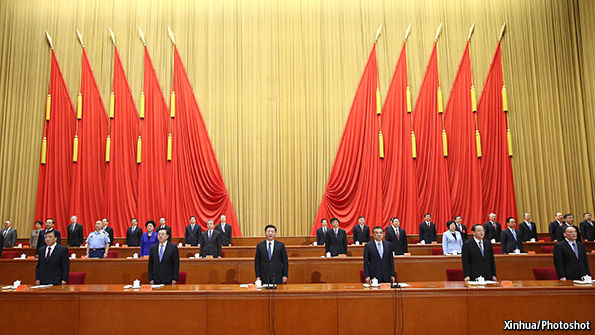Schrödinger’s panda

CHINA seems to swing from insecurity about its science to hubris. In 2015, when Tu Youyou, a pharmacologist, became the first scientist to win a Nobel prize for work carried out in China, the state media’s reaction was not to celebrate her ground-breaking medicinal chemistry. Rather, they claimed that the award was a recognition of traditional Chinese medicine—something she said had little to do with the work that won her the award.
This week Xi Jinping, China’s president, fell into the opposite trap, of overconfidence. Addressing a sea of scientists at a joint meeting in Beijing of the Chinese Academy of Sciences, the Chinese Academy of Engineering and the China Association for Science and Technology (see picture above), he repeated his government’s aim that China should become a leading scientific innovator by 2030 and a dominant scientific country by 2049 (a date chosen because it is the 100th anniversary of the communist takeover).
China already spends lavishly on research and development, and publishes reams of scientific papers. Spending on R&D has more than doubled as a share of the economy since 2000, reaching 2.1% of GDP…Continue reading
Source: Economist




